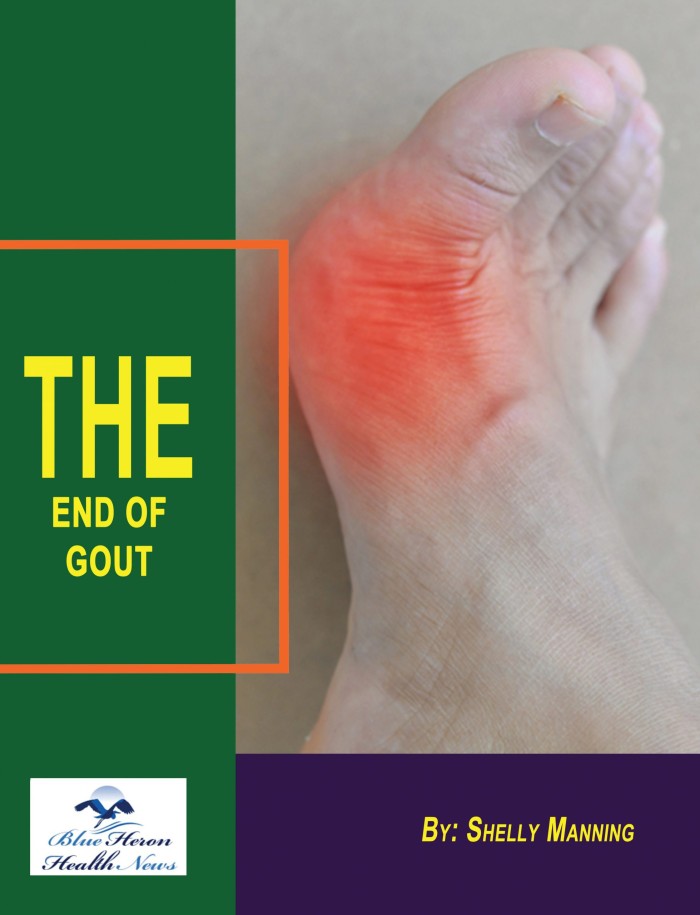
End Of GOUT Program™ By Shelly Manning The End of Gout Program is an intensive lifestyle guide and diet therapy to treat gout. It aids in minimizing and treating the uncomfortable and painful signs of gout naturally and safely. It will teach the impacted everything regarding the condition. This natural program eliminates triggers and factors that give rise to symptoms. The recommendations are honest, effective, safe, and science-based. The program treats you inside out with gout by attacking the cause. By just signing in, you get to access all the valuable information and make your life gout-free. The program has a 60-day money-back too for risk-free use. Several users have expressed their 100 percent satisfaction and results. Give it a try, and you are sure to be surprised by the fantastic results.
What role does vitamin C play in gout prevention?
Vitamin C also plays a part in the prevention of gout since it influences uric acid levels in the body, which is the primary cause of gout. Gout is an arthritic disorder caused by crystallization of uric acid deposits within the joints, making them acutely painful and inflamed as well as red, especially involving the great toe. That is how vitamin C can act in the prevention of gout:
1. Decreasing the Levels of Uric Acid:
Vitamin C and Uric Acid: Vitamin C may be able to lower the blood’s uric acid level, studies have shown. Uric acid is created as the body metabolizes purines, which are found in certain foods and beverages. High uric acid leads to the deposition of uric acid crystals within joints, forming gout attacks.
Mechanism: Vitamin C may enhance excretion of uric acid by the kidneys and thus reduce blood uric acid levels. This effect was confirmed through clinical trials consisting of higher vitamin C consumption with lower uric acid levels in individuals suffering from gout or at risk.
2. Antioxidant Properties:
Reducing Inflammation: Vitamin C is a potent antioxidant that helps combat oxidative stress in the body. Oxidative stress is thought to play a role in inflammation and pain during gout attacks. By destroying free radicals, vitamin C can help reduce inflammation in the joints and tissues, potentially lowering the severity of gout symptoms.
Protecting Joint Health: Besides reducing oxidative stress, vitamin C also protects general joint health, which can benefit individuals with gout or other forms of arthritis.
3. General Health Improvement:
Supporting Immune Function: Vitamin C boosts the immune system, and this can help the body deal with inflammatory conditions like gout. It also supports tissue and cartilage repair, which can be impaired during gout attacks.
Management of Comorbidities: Gout patients are likely to have comorbid conditions such as hypertension, diabetes, and obesity that can further initiate the risk of gout attacks. Vitamin C’s function in improving cardiovascular health, regulation of blood sugar levels, and metabolic function may indirectly contribute to the management of the risk-increasing factors for gout.
4. Food Sources of Vitamin C
Fruits and Vegetables: Vitamin C is also present in plenty in citrus fruits (grapefruits, lemons, oranges), kiwi, strawberries, bell peppers, broccoli, and spinach. These foods can be included in a diet to maintain high levels of vitamin C and keep a check on uric acid.
Supplements: In some cases, in the event of poor dietary levels, supplements of vitamin C may be employed. However, one must consult a physician before taking vitamin C supplements since excessive intake can cause side effects such as kidney stones, worsening gout in some patients.
5. Avoidance of Excessive Vitamin C
Risk of Kidney Stones: While vitamin C decreases uric acid levels, excessive intake of vitamin C can actually increase the risk of kidney stones in certain individuals, particularly those with a history of kidney problems. Since both uric acid and calcium oxalate are involved in the development of kidney stones, very high doses of vitamin C may lead to excessive excretion of oxalate, a substance that causes kidney stones.
Moderation is Key: A usual dosage for vitamin C intake is 500 mg per day, but intakes greater than this (more than 2000 mg per day) are risky, particularly for individuals with kidney stones in their past or for those with high risks of developing kidney stones.
Conclusion:
Vitamin C may be an adjunct in preventing gout by lowering blood levels of uric acid, lowering inflammatory response, and providing antioxidant protection. A vitamin C-rich diet from vegetables and fruits is a successful method of helping to prevent gout attacks. Nevertheless, have balanced consumption because an excess of vitamin C increases the risk of kidney stones, a complication for a person with gout. Always consult a medical practitioner before you make any drastic changes in vitamin C intake, especially if you suffer from kidney stones or other similar medical conditions.
End Of GOUT Program™ By Shelly Manning The End of Gout Program is an intensive lifestyle guide and diet therapy to treat gout. It aids in minimizing and treating the uncomfortable and painful signs of gout naturally and safely. It will teach the impacted everything regarding the condition. This natural program eliminates triggers and factors that give rise to symptoms. The recommendations are honest, effective, safe, and science-based. The program treats you inside out with gout by attacking the cause. By just signing in, you get to access all the valuable information and make your life gout-free. The program has a 60-day money-back too for risk-free use. Several users have expressed their 100 percent satisfaction and results. Give it a try, and you are sure to be surprised by the fantastic results.